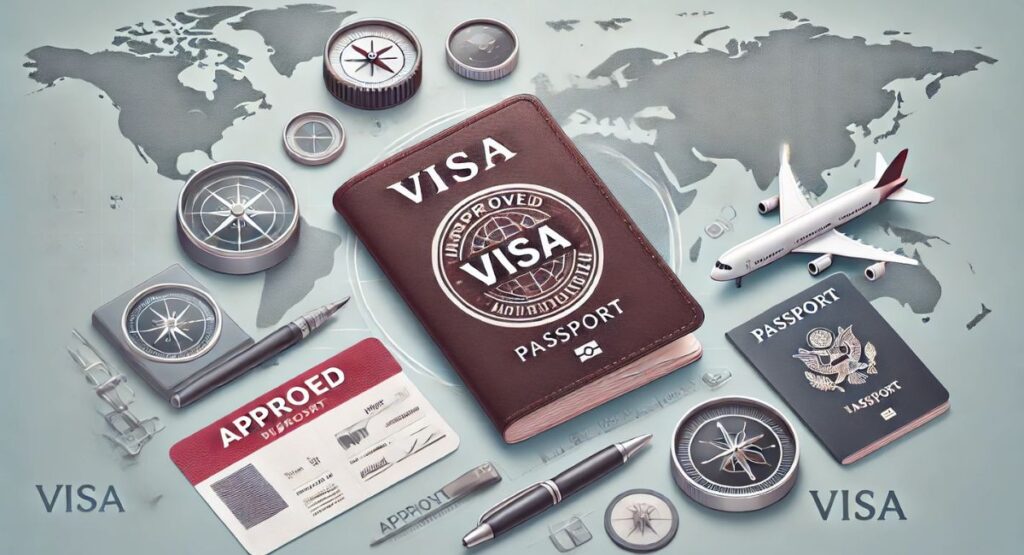Introduction
Canada is renowned for its stunning landscapes, vibrant cities, and diverse culture, making it a sought-after destination for travelers and immigrants alike. For South Korean and Spanish citizens, the prospect of exploring or settling in Canada is not just a dream—it’s an achievable goal. However, navigating the Canada visa application process can be daunting without proper guidance. This blog post aims to demystify the pathway to obtaining a Canada visa for citizens of South Korea and Spain, providing essential information, tips, and answering common questions.
Understanding Canada Visa Options
Types of Canada Visas
Before delving into the application process, it’s crucial to understand the types of visas available: CANADA VISA FOR SOUTH KOREAN CITIZENS.
- Visitor Visa: This short-term visa allows South Korean and Spanish citizens to visit Canada for tourism, business, or family visits. It typically permits stays of up to six months.
- Study Permit: For those looking to pursue education in Canada, a study permit is necessary. This visa allows international students to attend designated learning institutions.
- Work Permit: If you plan to work in Canada, you will need a work permit. This can be employer-specific or open, depending on your circumstances.
- Permanent Residency: For those seeking to make Canada their long-term home, options like the Express Entry system or Provincial Nominee Programs (PNPs) may be suitable.
Eligibility Criteria
Each visa type has specific eligibility requirements. Generally, South Korean and Spanish citizens must:
- Have a valid passport.
- Demonstrate financial stability to cover their stay.
- Provide proof of ties to their home country.
- Undergo medical examinations and security checks, if required.
The Application Process
Step 1: Determine the Right Visa
The first step in your journey is to determine which visa suits your needs. Assess your purpose for visiting Canada and choose accordingly.
Step 2: Gather Required Documents
Each visa type requires different documentation. Commonly required documents include:
- A completed application form.
- A valid passport with at least six months of validity remaining.
- Passport-sized photographs.
- Proof of financial means (bank statements, employment letters).
- Travel itinerary and accommodation details.
- Additional documents pertinent to the specific visa type (acceptance letters for study permits, job offers for work permits, etc.).
Step 3: Submit Your Application
Applications can be submitted online through the Immigration, Refugees, and Citizenship Canada (IRCC) website or through a local Canadian embassy or consulate. Ensure that all documents are complete and accurate to avoid delays. CANADA VISA FOR SPANISH CITIZENS.
Step 4: Pay the Fees
Visa application fees vary depending on the type of visa. Payment can usually be made online during the application process.
Step 5: Wait for Processing
Processing times vary based on the type of visa and the volume of applications. It’s advisable to check the IRCC website for current processing times.
Step 6: Prepare for Arrival
Once your visa is approved, prepare for your arrival in Canada. Familiarize yourself with Canadian customs, transportation, and local laws to ensure a smooth transition.
FAQs
1. How long does it take to process a Canada visa for South Korean and Spanish citizens?
Processing times depend on the type of visa and individual circumstances. Generally, visitor visas may take a few weeks, while study and work permits could take several months. Always check the IRCC website for the most accurate processing times.
2. Do South Korean and Spanish citizens need a visa to visit Canada?
Yes, both South Korean and Spanish citizens require a visa to enter Canada. However, South Korean citizens can apply for an Electronic Travel Authorization (eTA) if traveling by air, which is a simpler process than a full visa application.
3. Can I apply for a Canada visa online?
Yes, most visa applications can be submitted online through the IRCC website, making the process more accessible and efficient.
4. What should I do if my Canada visa application is denied?
If your application is denied, you will receive a letter explaining the reasons. You can either address those concerns and reapply or, in some cases, appeal the decision. Consulting with an immigration lawyer can be beneficial.
5. Are there any special considerations for South Korean and Spanish citizens?
While the general application process is similar for all nationalities, it’s essential to check for any specific instructions or additional documentation required for citizens of South Korea or Spain on the IRCC website.
Conclusion
Embarking on the journey from Seoul to Madrid and eventually to Canada can be both exciting and challenging. With the right information and preparation, South Korean and Spanish citizens can successfully navigate the Canada visa application process. Whether you’re planning a short visit, pursuing educational opportunities, or looking to make Canada your new home, understanding the various visa options and requirements is crucial. By following the outlined steps and being mindful of the FAQs, you can pave a smooth pathway to experiencing the beauty and opportunities Canada has to offer. Safe travels and good luck on your Canadian adventure!

